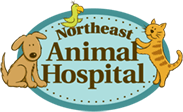What Veterinarians Wish Every New Pet Parent Knew
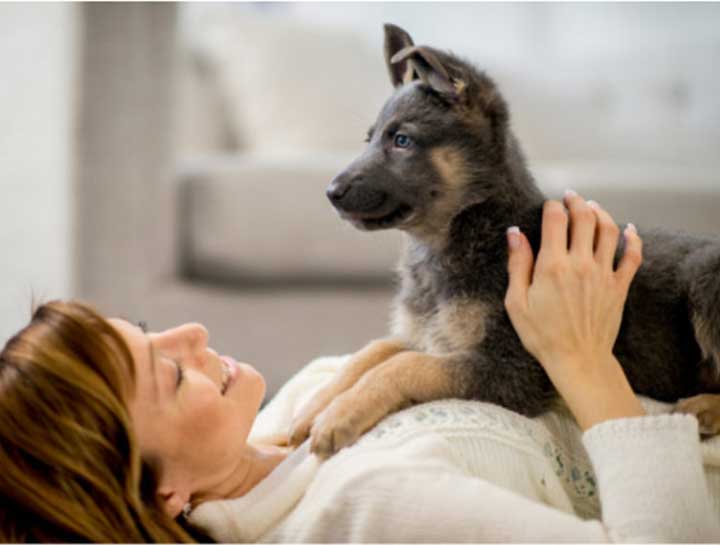
Recently a friend was asking if it was okay that her new puppy had just swallowed a piece of rawhide. Being a first-time dog owner as an adult, she was naturally worried and wanted to do the best thing for her new “baby.” After receiving instructions on the symptoms to watch for in the case of possible bowel obstruction, it was also explained to her that rawhides are not good for dogs; and she was given ideas for some great alternatives to help with the chewing instinct. But, this interchange brought up a very good question: What do we wish every new pet parent knew?

Do you know the safest alternatives to rawhides? Read on!
We asked our veterinarians
We asked two of our vets for their best advice for a new dog or cat owner. Dr. Brezicki says, “Everything is a training opportunity,” as she feels behavior is one of the most overlooked, yet most important aspects of a pet’s life. She advises to always use treats and praise for training. Positive reinforcement is key for teaching a pet what TO DO rather than simply scolding them when they do something you don’t want them to do.
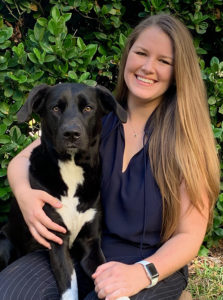
Dr. Brezicki suggests using every opportunity to train your new pet using positive reinforcement. This leads to a less anxious pet!
For puppies and kittens, get them used to being touched so that vet visits are less stressful! Peanut butter (Xylitol free!), Cheez-Whiz, and wet food are your friends! “Practice” nail trims by just giving peanut butter to your puppy while simply touching their paws, then touching their nails, then holding their paw out, then showing the nail clippers—work your way up to the actual nail trim over a period of days to weeks. This slow approach decreases fear, anxiety, and stress associated with whatever activity you practice!
Other health-related activities include brushing their teeth, looking in their ears, looking in their mouth, and touching their belly. Now is the time to acclimate them to things they’ll experience in life such as walking on a leash, car rides, and hearing loud sounds (thunderstorms, doorbells, knocking on the door, vacuum cleaners, etc.). Socialization at an early age is key. Have them meet new people and dogs, and take them to new places (after they have received their vaccines).
Dr. Brezicki also recommends that new kitten owners only engage in “legal play;” if your kitten bites your hand, immediately replace it with a toy. It may be cute when tiny kitten teeth bite your finger, but adult cat teeth hurt a lot more! Remember, toys and enrichment for every age can help decrease anxiety and boredom! Lastly, she adds, “Talk to your vet if your pet shows signs of anxiety (in general or even if it’s just for storms), we can help make sure they are comfortable!”
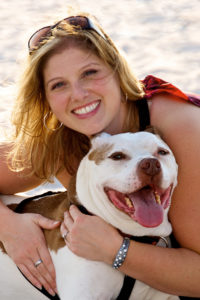
Dr. Benham stresses the importance of exercise and interaction for new pets. This will lessen how destructive new pets can be!
Dr. Benham recommends that owners think of a puppy as not just a living, breathing toy, but as a responsibility. Start training, acclimating to handling, and working on socializing for a few minutes daily. A well-trained dog is usually less stressed and is less stressful for owners. Exercise is important; a tired puppy is a happy (and usually better-behaved) puppy. Make sure the puppy spends some time (an hour or so) away from owners daily to help them learn to be on their own and decrease the risk of developing separation anxiety (this is especially important now with so many people working and schooling from home). Also, don’t go places like dog parks or the dog beach until they are fully vaccinated.
Kittens need lots of interaction too. They can be taught to fetch, walk on a leash, and do many other things if owners want to try to train them. Without enrichment, they are more likely to find ways to entertain themselves that may be more destructive. Always use positive reinforcement for kitties as well. And start kittens on at least some wet food. “Wet food is better long term for their kidneys so we recommend they get some wet food daily, even if you don’t intend to feed it to them as adults. Starting them on it as kittens can make it easier to transition if they need wet food as adults.”
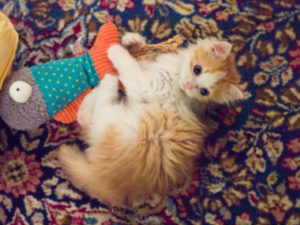
Kittens need to find ways to entertain themselves. Check out our list for ways to make sure they do this safely.
What we wish you wouldn’t give your pets
- Along with the aforementioned rawhides, other chew toys to avoid are hooves, antlers, pigs ears, and other “natural” chews. These are either much too hard for teeth of any age dog, or they get soft and pose choking and/or obstruction issues which can require surgery. Dr. Benham likes to say, “if you can’t make a dent in it with your fingernail, don’t let your dog chew it.”
- Tennis balls are great for a game of supervised fetch, but they are too easy to pull apart, and “defur,” becoming dangerous if swallowed.
- While it can be sweet when your child wants to give the family pet their stuffed animals, plush toys for kids are not designed for pets. They are easily destroyed, allowing stuffing, buttons, and other parts to become choking hazards and potential intestinal blockages.
- Few things are cuter than a kitten and a ball of yarn, but unfortunately, it’s a potentially deadly combination. String, ribbons, rubber bands, and yarn are very dangerous when swallowed, and they are very easily swallowed. Many toys that are marketed for cats have these adornments attached, so supervision is needed. Toy mice may have eyes, noses, ears, and tails glued on and should either be removed or checked regularly to ensure there are no loose parts.
- Ping-pong or other hard balls are good choices for kittens and cats but avoid foam balls. These balls have been known to get stuck in the mouths of cats, with them being unable to open their jaw wide enough to get their teeth out of the ball.
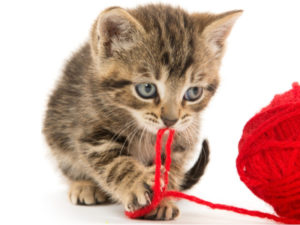
Kittens find yarn irresistible, but do you know why this adorable combo could be deadly?
A few other important things to know about new pet parenthood
- A grain-free diet isn’t best! We hope that by now our pet parents know that feeding a grain-free diet isn’t what’s closest to “nature” and doesn’t eliminate future possible allergies. In fact, pet allergies are almost always linked to the protein source. Grain-free diets can actually lead to heart issues. Check out our blog on the subject here.
- Spaying and neutering do not make your pet fat and lazy. We have a blog on that too!
- Price comparison is natural these days, but when price-checking vets, make sure you’re comparing apples to apples. Low-cost and budget clinics do exist, and it’s better for a pet to have some vet care than none at all. But the costs that are associated with vet care do vary based on the types of technology used, the availability of in-house diagnostics, post-surgical pain management, and even the expertise and experience of the veterinarians. Knowing the differences can help you decide which type of vet care is right for you and your pet.
- Remember that vet care doesn’t end when your puppy or kitten has gotten their vaccines and been spayed or neutered. Regular checkups and dental care are the two most important ways to keep your pet healthy and living their longest, happiest life possible, and don’t forget about parasite control.
- Don’t be afraid to ask questions! There really is no such thing as a dumb question. If it worries you, then please, ask us!

Starting out on the right foot can lead to years of wonderful companionship.
We hope we’ve answered some questions you may have wondered about, and even some you may not have thought of. And if you have any others, please, feel free to ask! Together we can help you and your new pet be together for a very long time.
